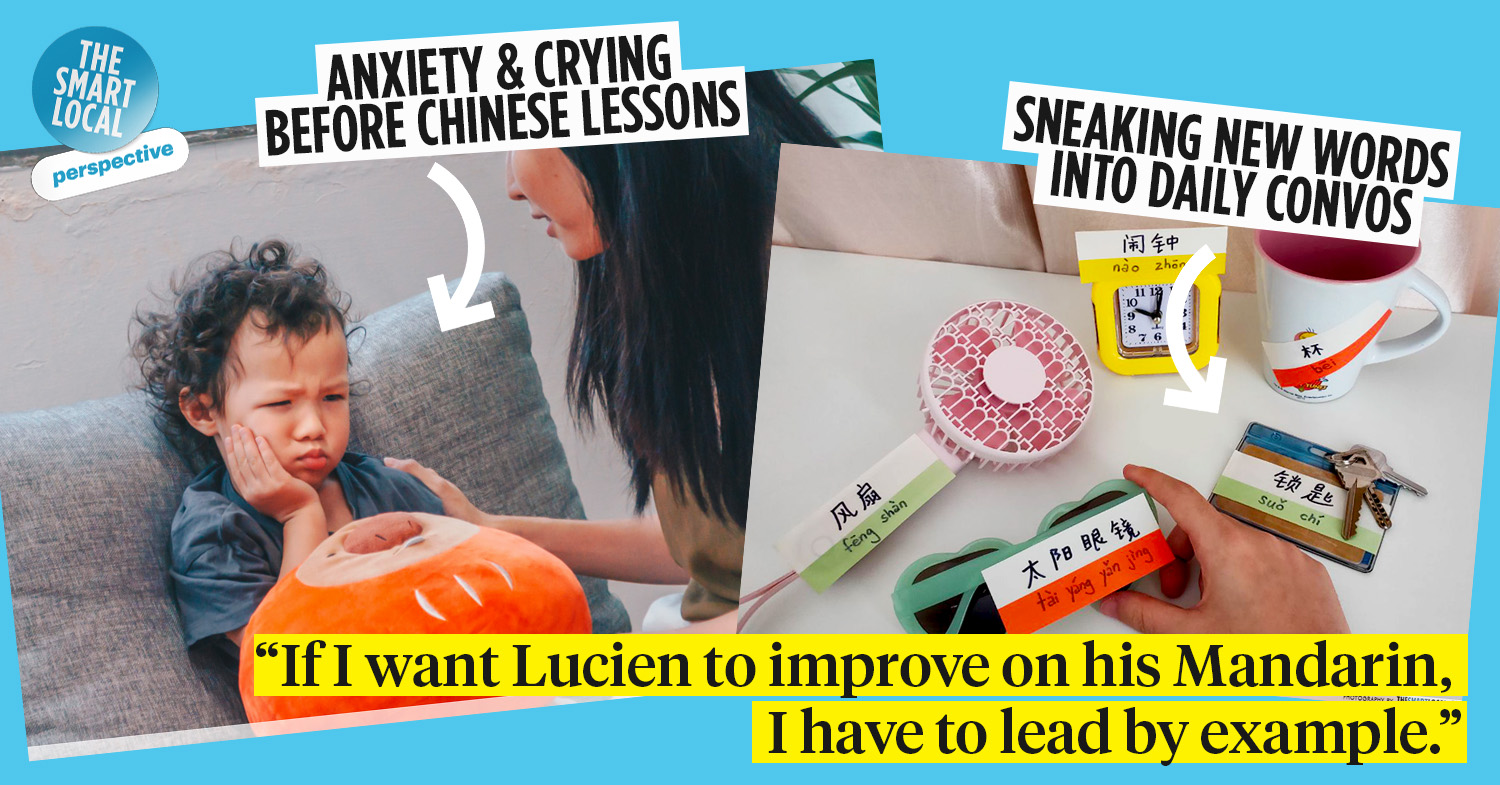Teaching my child to speak Mandarin
“在一个风和日丽的早上 (One fine morning) …” – If this was the phrase that carried the entirety of your phony B4 Chinese composition school life, congratulations, you’ve made it to the “Millenial parents with sub-par Mandarin, how to even teach my kids with Pinyin?” club.
Busting a rhyme in English? Easy. Getting my son to speak Mandarin? Help me. Having a forced conversation in Mandarin usually ends in tears, jeers, and me needing beers. If you, too, struggle with bilingualism with your child, this story might resonate.
Here’s how I introduced Mandarin into my son’s daily life at the age of 7:
Picking up mandarin as an English-speaking household
Problem #1: My son doesn’t have a Chinese name
“I’m not Chinese what, so why must I learn Mandarin?”, my half-Eurasian 7-year old son quipped as my 100% Singaporean-Chinese, sometimes ah lian soul, stared at him in disbelief. My mind searched for ways to tell him that just because his birth certificate states “Eurasian”, it doesn’t give him a free pass to not learn Mandarin.
Save for his extremely long lashes and big, doe eyes, he is very much Chinese. Except, well, he doesn’t have a Chinese name. I guess this one was on me. Already with a middle name, I didn’t see the need for a Chinese one. I didn’t want his full name to include every letter of the alphabet, okay?
 Image for illustrative purposes only.
Image for illustrative purposes only.
In pre-school Mother Tongue, only the full, non-Chinese kids were called by their English names. I think that subconsciously made him feel like he couldn’t really identify with being Chinese.
For the first half of Primary 1, all his Chinese textbooks were written with his English name, until his Mother Tongue teacher asked me to give him a Chinese one, or she would. And so his Chinese name is now a direct translation from his English name, Lucien. Go figure.
Problem #2: Our environment consists of mostly English-speakers
I grew up with my maternal grandmother, who taught me both Mandarin and Cantonese.
However, the same can’t be said for Lucien. Since my grandmother doesn’t live with us, our household only consists of all English speakers.
That, and being a single parent, the responsibility to impart Mandarin lies solely on my shoulders. As much as I could read, speak, and write in Mandarin, I conversed with my parents in English my whole life, and it was the same with Lucien. All of our close family and friends also speak English, including Lucien’s school buddies
The fact is, the foundation for Mandarin just wasn’t there from the beginning. Even as I tried incorporating the occasional Chinese greetings and high-frequency words, it wasn’t enough to ingrain the basics of the language. I could say “睡觉” (shuì jiaò – sleep) every night, and it was “one ear in, one ear out” for him.

Image for illustrative purposes only.
Plus, if you have a kid in primary school, chances are your devices are hijacked with games in the likes of Roblox and Minecraft. Your YouTube account probably consists of yelling game streamers on shuffle. The issue? Too much screen time, too little Mandarin. While Lucien can throw out acronyms like “POV” and “IDK”, his Mandarin is CMI.
“Why are they all in English?” I asked him one day, hoping that he, a 7-year-old, would understand that it was in fact, a cryptic message to get him to watch more Mandarin programmes. Without missing a beat, he claimed that he also watched animated tank videos, in Russian.
So while he struggles to complete a sentence in Mandarin, he confidently speaks to me in Russian, or so he thinks. This is the extent of how much Lucien refuses to learn his Mother Tongue.
Problem #3: My son gets anxious when learning Mandarin
Lucien was only properly exposed to Mandarin when he entered pre-school, and I kid you not when I say their standard of Mandarin is higher than I am after two glasses of wine. He was expected to copy essays with words that even I could not comprehend. Having no foundation, combined with a steep learning curve equated to him absolutely hating his Mother Tongue.
While it seemed like he could read the school storybooks, it was just memory work without recognising or understanding what they meant. Very much like me belting out Jay Chou songs at KTV – I can’t read the lyrics, I just remember.
And if I couldn’t remember, I had Hanyu Pinyin lyrics on hand, and I did a pretty believable job at convincing my friends I was fluent in reading. His little knowledge of Mandarin meant that when Hanyu Pinyin was introduced in Primary school, he had trouble keeping up.
Now in Primary 1, he mixes up the pronunciations of many Hanyu Pinyin words and tones.
Although he frequently gets praised for his impeccable handwriting, the order of his strokes are all wrong. He writes his Chinese characters as if he’s Da Vinci – he starts with any stroke he feels like, without any order or flow. This makes memorising the words even harder. When I try to correct him, he cries and tells me he hates Chinese.
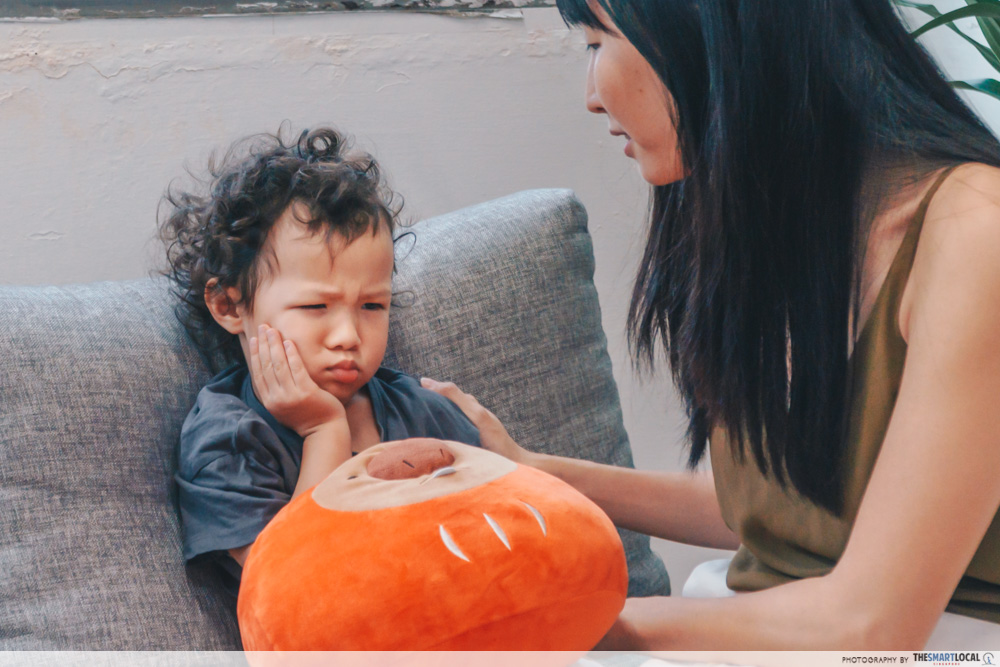 Image for illustrative purposes only.
Image for illustrative purposes only.
And it’s almost the same every time he’s made to do anything Mother Tongue related. The vicious cycle is as follows – Mandarin anything, anxiety, crying, tummy ache, strong aversion to Mother Tongue. Occasionally during bedtime, he tosses and turns and says he’s nervous about going to school because, you guessed it, Chinese lessons absolutely make his stomach churn.
I had previously thought I could put off having Chinese tuition for him until upper primary, as I didn’t want to pressure him academically at such a young age. However, it seems my spidey senses may have been wrong. Brb, actively looking for a Mandarin tutor now.
What he lacks in Mandarin, however, he makes up for in witty humour, perhaps as a ploy to mask his anxiety about using the language. “Mummy, do you know what stingray is called in Chinese?” he asked sometime back in complete, convincing confidence.
“No. Wow you know? What is it?” I asked. “Fāng Zǐ Rùi”, he replied, without batting an eyelid. I squealed, hugged, and praised him for knowing a complex word which I clearly didn’t. He smirked and ran off. It wasn’t only a few hours later that I suddenly remembered that Fāng Zǐ Rùi was in fact, the name of his classmate. How to teach like that?
How I encouraged my child to start speaking Mother Tongue
Solution #1: Integrate fun activities in Mother Tongue
Since he can’t take learning Mandarin seriously, I’ve devised a plan to “sneak” Mandarin words into our daily conversations. In fact, I needed to make it so ridiculous he wouldn’t even suspect we were actually learning. The key is to associate Mother Tongue with fun. As they say, if you can’t beat them, join ‘em.
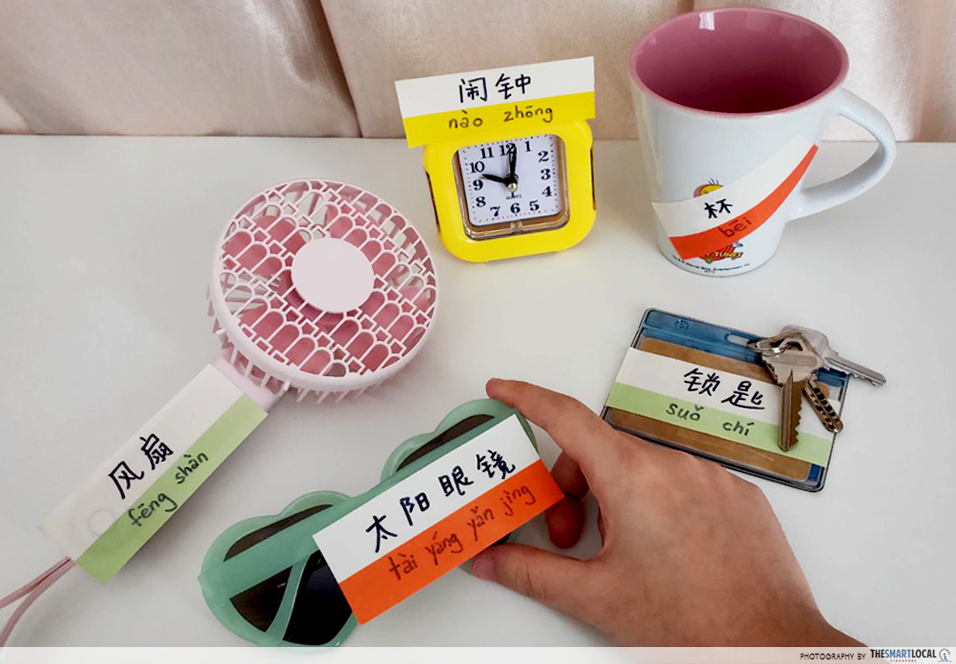 Image for illustrative purposes only.
Image for illustrative purposes only.
I started using words that would crack him up. I would say “Lucien is an egg” in Mandarin, and he would counter with “Mā ma shì zhāng láng” (Mummy is a cockroach) and burst out laughing thinking he’d topped my “insult”. I smile my evil smile and watch my master plan unfold in brilliant perfection.
Let me tell you, this game works. Many times I would see him desperately searching for a word to beat mine, and because he didn’t know them, he would ask. And when he asks, he learns. See what I did there, folks? He now knows a myriad of Mandarin words, albeit used best in arguments.
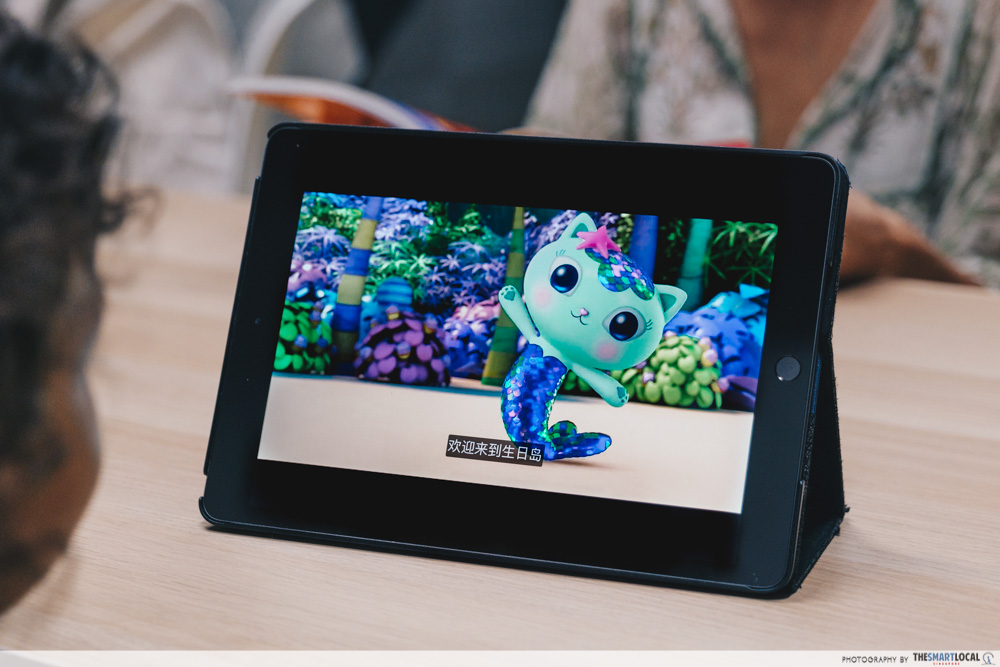
Image for illustrative purposes only.
I hatched master plan 2.0 for his 习字 (xí zì – practice writing). I would challenge him by writing the same words, and if he finished before me he would be rewarded with prizes of sorts, with a budget of course. Suddenly, his hour-long writing practice took 15 minutes, and Mother Tongue became exciting instead of dreadful.
When he was younger, I got him to watch Babybus, an educational YouTube channel that features interactive Mandarin videos. Now that Roblox has taken over, there was no way I could ever get him to sit through even 30 minutes of Chinese sing-alongs. Introducing books and videos didn’t work for Lucien, but it’s an approach that could work for other kids.
An affordable and easy way is to keep your kids’ preschool Mother Tongue storybooks and get them to recite them as practice. They contain plenty of basic high frequency words and chances are they’ll find it a piece of cake. That would boost their morale and kind of “pyscho” them into thinking learning Mandarin isn’t so hard after all.
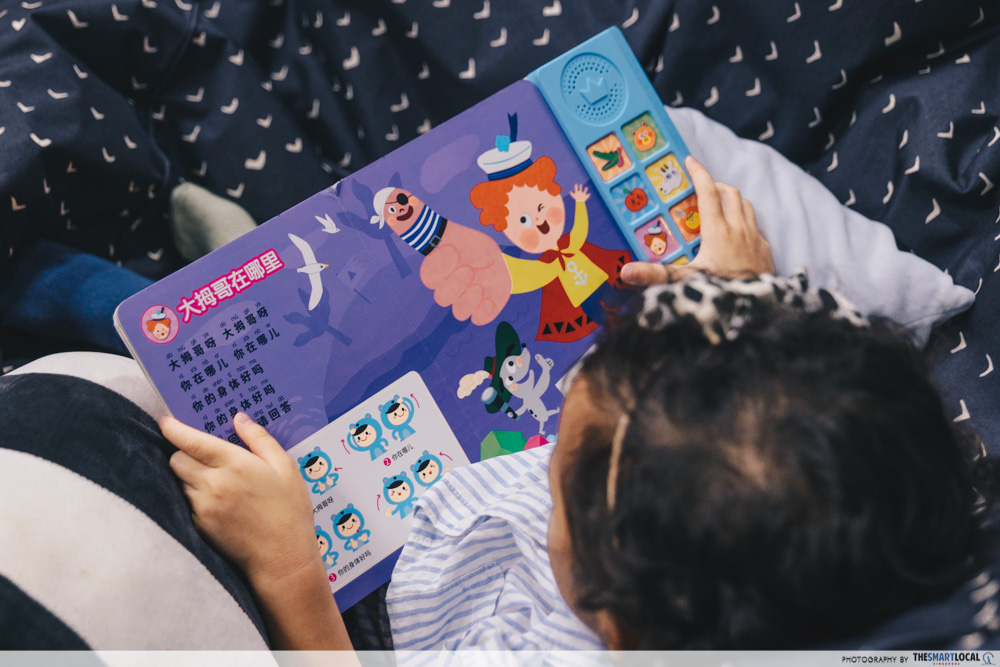
Image for illustrative purposes only.
If you’re looking to expand your library of Mandarin books, try online bookstore My Story Treasury. I spent longer than expected browsing through their extensive selection – soundbooks, Hanyu Pinyin, and perhaps my favourite is their collection of bilingual books that offer English translations. They’re perfect for parents like me whose Mandarin is “half-past-six”, or in other words, incompetent.
Maha Yu Yi is another online book place with a physical store. They have 很多 (hěn duō – many) choices for kids and adults, but what I like about a brick and mortar store is that my son can freely roam about the outlet and take his time picking out books that interest him. Being surrounded by physical books in an environment other than our home can truly enhance the experience of reading.
You can also check out Mandarin immersion camps if your kids have a free calendar during the upcoming school holidays. Haha Chinese offers camps for a short duration per day for 5 days, perfect for your little ones if they can’t keep still for too long.
Solution #2: Teaching him to appreciate Chinese culture
Growing up in melting-pot Singapore means certain aspects of our culture are slowly getting lost, and it’s apparent in my son’s generation. The only time he is aware of Chinese culture is during Chinese New Year because – angbao. Actually many angbao.
 Image for illustrative purposes only.
Image for illustrative purposes only.
Does he know why we celebrate the occasion? Nope. Do I know? Also nope. How then, do I get him to appreciate our culture? Again, the key is to think like him. If I were Lucien, what would make me care to know about anything Chinese? And then my eureka moment came – tanks.
For starters, he already had informed knowledge about tanks from all over the world, so I decided to ask him about Chinese-made ones. You could almost immediately see the sparkle in his eyes as he waxed lyrical about the evolution of tank models, and gave his two cents about how they fared against those from other countries.
I thought that was a perfect opening to tell him stories about Chinese dynasties and emperors, which he thought were “cool”. Alright, alright, we’re getting somewhere! Whenever we hung out with my grandmother, I would make her recall stories about our Chinese ancestors, to which she would tell in such vivid detail that even our resident “Mother Tongue hater” was intrigued.
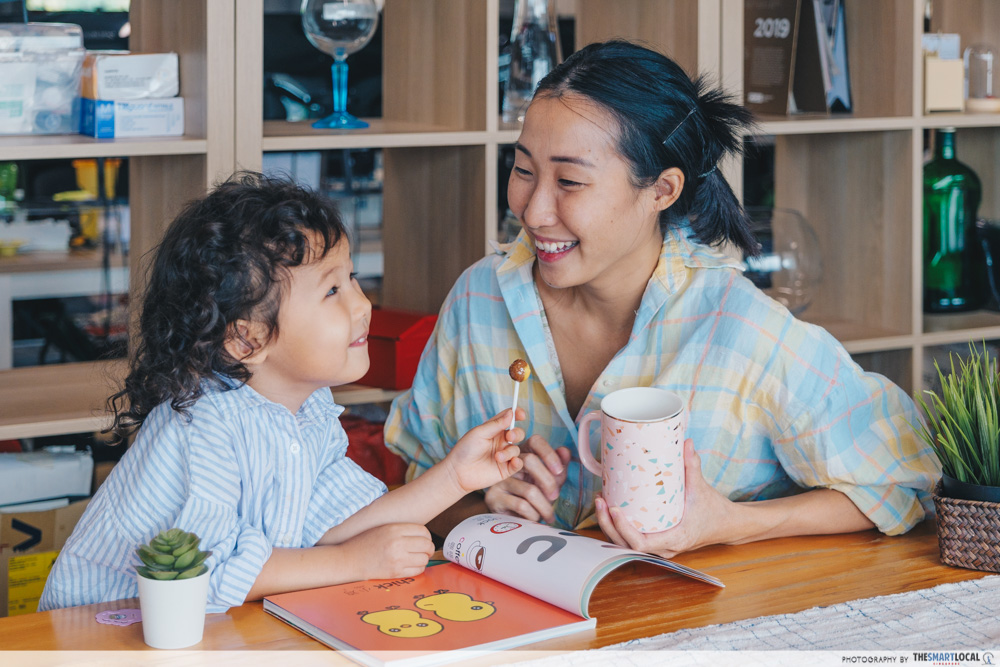
Image for illustrative purposes only.
It may seem like a long shot, but taking baby steps in getting him to understand our culture through his interests will hopefully make his Mother Tongue journey more fun than 烦 (fán – frustrating).
Another unorthodox manner which piqued Lucien’s interest in Mandarin is drum roll… Jackie Chan. While channel surfing, we chanced upon one of Jackie’s 1984 movies, Wheels on Meals. If anyone can hold Lucien’s attention while speaking entirely in Mandarin, it’s the Kung Fu master himself.
It was the first and only Mandarin movie to date that Lucien has finished. Although he barely understood what the actors were saying, Lucien was thoroughly entertained by the hilarious title and action scenes. He asked many questions about Jackie Chan, Hong Kong, and martial arts. And so I casually slipped in the low-down on Chinatown.
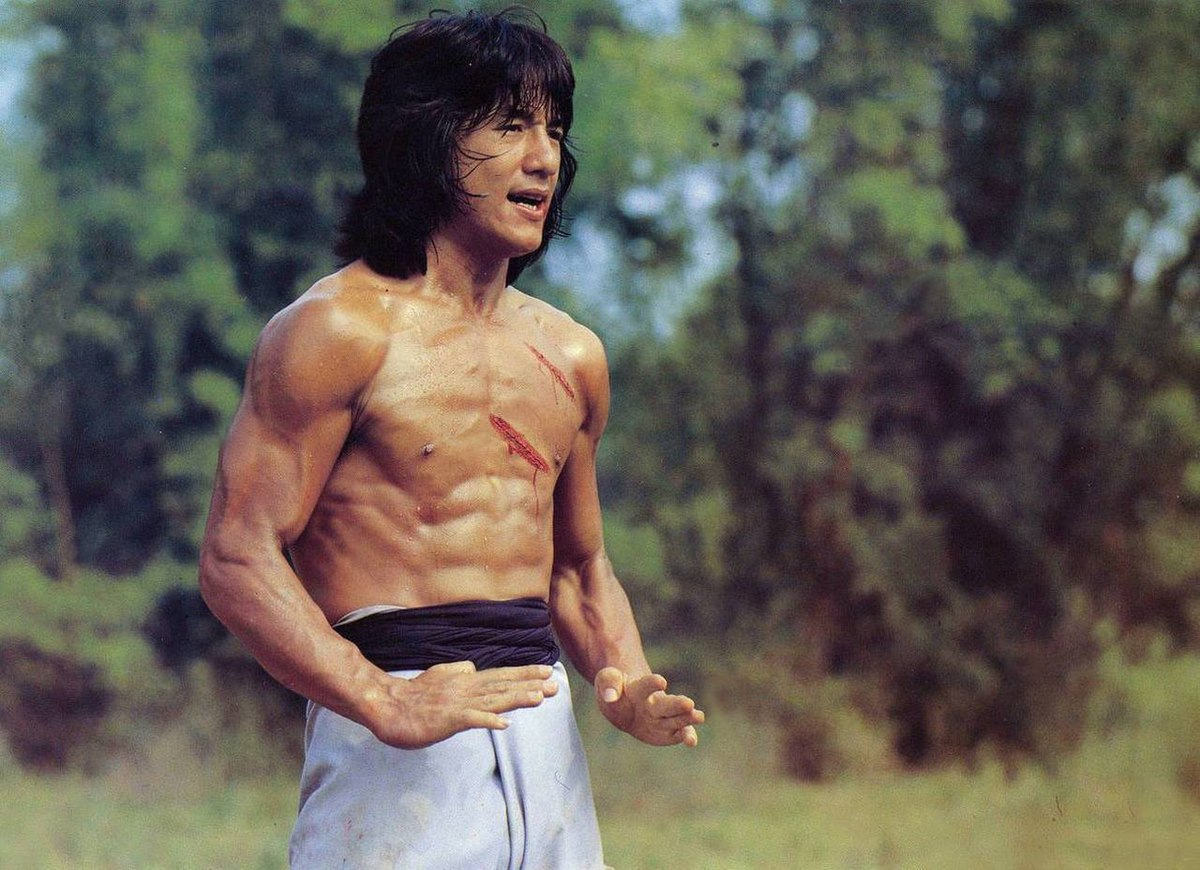
Image credit: Wikipedia
Solution #3: Brush up on my Mother Tongue and use it in conversations naturally
As the saying goes, “the apple doesn’t fall far from the tree”. If I want Lucien to improve on his Mandarin, I have to lead by example. All these years I’ve been putting Mandarin on the back burner, and he’s just been following my cue.
Over the past year or so, I took it upon myself to brush up on my own Mandarin. To be honest, I’d never realised the importance of Mandarin until I had my first job, where I had to interact with colleagues and clients from all over Asia.
Now that I’ve been tutoring for years, I’ve had many students who were Chinese nationals, or whose parents were, and it was imperative for me to improve my fluency. I downloaded Google Translate and read through all of Lucien’s Mandarin textbooks, but the one thing that helped upgrade my eloquence was the frequent conversations I had with the parents.
From there, I gained confidence to converse in longer sentences, and picked up new vocabulary along the way. I even ask my students to teach me Mandarin words. And get this, did you know that the proper way to say air-conditioner in Mandarin is actually 空调 (kōng tiáo) and not 冷气机 (lěng qì jī)? My whole life is a lie.
Now that my aptitude in Mandarin has soared to new heights, ahem, I make it a point to use Chinese in my conversations with Lucien more casually. Previously, my grandmother would try her utmost to use her very broken English to talk to my son, but I now get her to speak in full Mandarin with him. He’ll learn eventually.
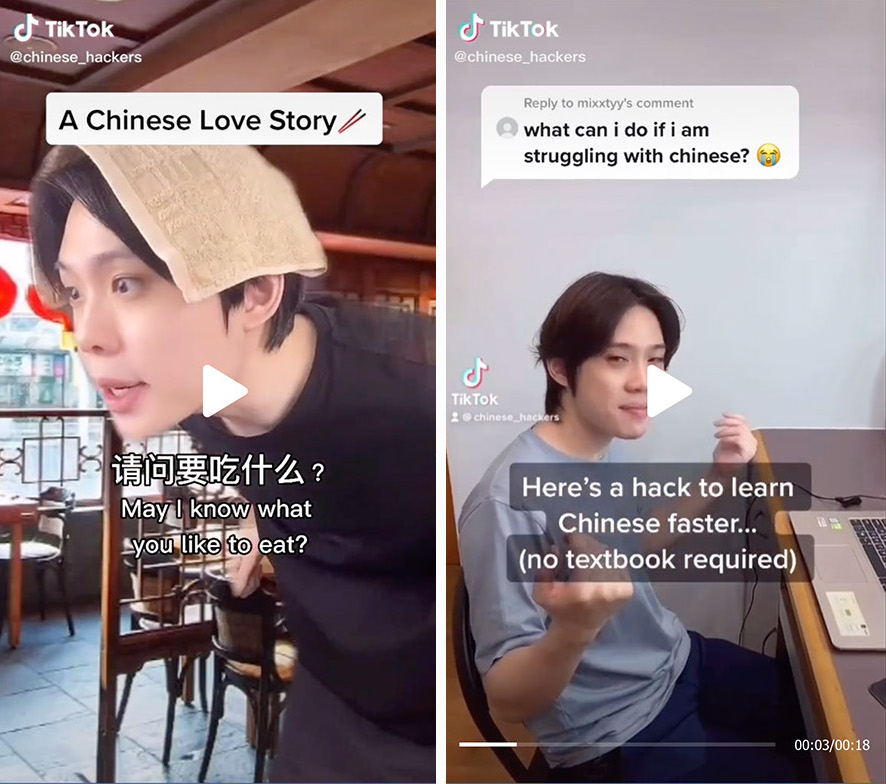 Image adapted from: @chinese_hackers
Image adapted from: @chinese_hackers
When I’m not busy being a bilingual genius, I catch up on YouTube and Tiktok reels. I chanced upon an American youtuber called Xiaomanyc, a polyglot who goes around the country surprising people with his effortless Mandarin, as well as Chinese Hackers, a pair of Singaporean TikTok twins.
I learned a whole slew of Mandarin vocabulary from them, and it actually spurred me to use Chinese more often. I can only hope Lucien will pick up on my newfound enthusiasm for Mother Tongue and embrace the language more.
Begin your child’s bilingual journey from birth
Since Mandarin was only integrated much later for 7-year-old Lucien, it’s inevitable that I fork out more time, money, and effort to get him to learn it. He could have been a calligraphy whiz or an avid Chinese poem-reciter. Instead, he now experts in Mandarin trash-talk.
Parents, the takeaway is, if you want to avoid the hassle, speak to your child in their Mother Tongue from birth. Whether it’s two languages or more, it doesn’t matter! They’re smart little human beans with an uncanny ability to absorb whatever we expose them to.
In fact, studies have shown that babies start to distinguish vowel sounds even when in the womb. However, the later we start, the harder it gets as they would have already been hardwired to use a language they’re accustomed to.
Despite the struggle, I am proud of Lucien’s Mother Tongue journey, however the pace. Learning a language is hard work. So while I’m patiently waiting for Lucien to channel his inner Confucius, I’m gonna revel in his many comical – and at times – exasperating attempts to master Mandarin.
The best part of it all? I get to hear him say, “妈妈,我爱你” (mā ma, wǒ aì nǐ – Mummy, I love you).
Read more parenting articles:
